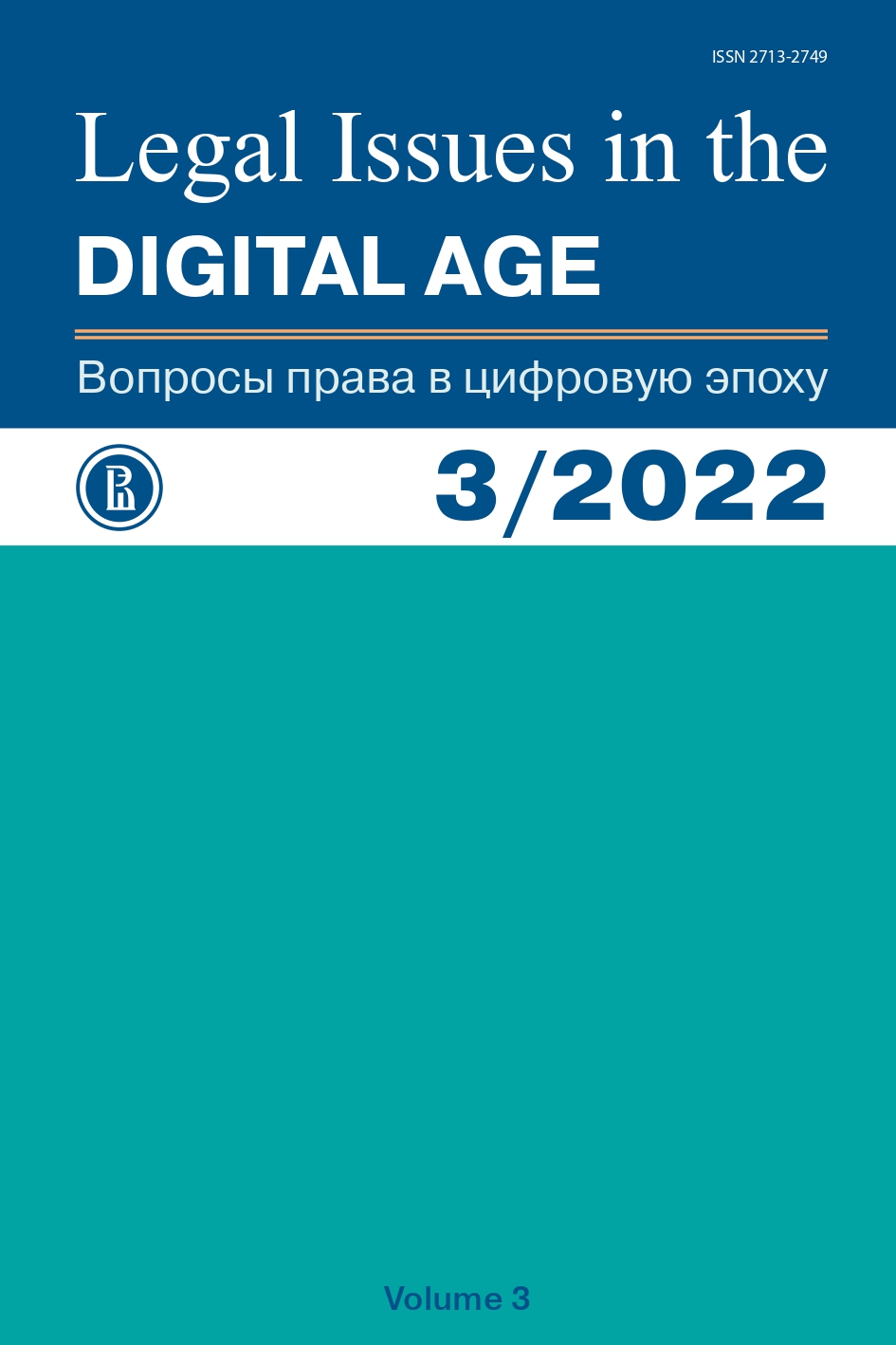LegalTech in Digital Economy and in Legal Regulation of Individuals Economic Activities
Abstract
Based on law and doctrine, the article examines the categories of ‘digital economy’,‘LegalTech’ and ‘individuals’ economic activities’ in their interaction. It stresses that those categories represent Russia’s priority lines of development and can be fully digitalised. Legal science reflects diverse interpretations of LegalTech. There is a widespread understanding is that LegalTech is a narrow toolkit for lawyers. The author argues for an expansive interpretation of LegalTech as a comprehensive phenomenon intended for a wide range of economic agents, and shows LegalTech to be both anelement of the digital economy and a digitalised means for legal regulation of individuals’ economic activities. Trends and risks in the implementation and use of LegalTechtools are identified. In the aspect of legal regulation, the functional characteristics of LegalTech are formulated on the basis of an instrumental legal approach.
References
Abramov V.Yu. (2022) Digital law. Practice of electronic documentation management in public communications: a guide. Moscow: Statut, 168 pp. (in Russ.)
Abrosimova Ye.A., Andreyev V.K. et al. (2019) Business law. A modern view: a research. Moscow: Justitcinform, 600 pp. (in Russ.)
Afanasyev S.F. (2020) Legislative regulation of artificial intelligence. Rossiyskaya yustitsiya=Russian Justice, no. 7, pp. 46–49 (in Russ.)
Agamagomedova S.A. (2021) Axiological aspects of state control and supervision. Pravo. Zhurnal Vysshey shkoly ekonomiki=Law. Journal of the Higher School of Economics, no. 1, pp. 37–61 (in Russ.) DOI: https://doi.org/10.17323/2072-8166.2021.1.37.61
Alcantar K., Gillespie K. (2019) Customer-Centric Legal Tech. GPSolo, vol. 36, no. 1, pp. 48–51.
Alekseyev S.S. (1995) Theory of law. M.: BEK, 320 p. (in Russ.)
Altukhov A.V., Kashkin S. Yu. (2021) Legal nature of digital platforms in Russian and foreign doctrine. Actualnye problemy rossiyskogo prava=Issues of Russian Law, vol. 16, no. 7, pp. 86–94 (in Russ.)
Ambrogi R. (2017) A Golden Age of Legal Tech Start-Ups. Law Practice: The Business of Practicing Law, vol. 43, no. 2, pp. 34–40.
Baymuratova L.R., Dolgova O.A. et al. (2018) Digital literacy for future economy. Moscow: NAFI Publishing House, 86 pp. (in Russ.)
Berg L.N. (2021) Theory of legal impact. Moscow: Statute, 309 pp. (in Russ.) DOI: https://doi.org/10.33397/978-5-8354-1688-2
Bykov A. Yu. (2021) Digital Economy and Historical Economic Paradigms in Russia. Moscow: Prospekt, 100 р. (in Russ.)
Byrne M. (2019) Real estate report 2019. The Lawyer, vol. 3, no. 7, p. 1.
Churakov V.D. (2020) Issues of the use of information technologies in legal science and practice. Zhurnal zarubezhnogo zakonodatelstva i sravnitelnogo pravovedeniya=Journal of Foreign Legislation and Comparative Law, no. 1, pp. 101–113 (in Russ.) DOI: https://doi.org/10.12737/jflcl.2020.004
Davis J. (2019) 10 questions: Magician-turned-lawyer helps make legal problems disappear. ABA Journal, vol. 105, no. 5, p. 1.
Gvozdetsky D.S. (2020) LegalTech and departmental rulemaking: prospects. Obrazovanie. Nauka. Nauchniye kadry=Education. Studies. Research Cadres, no. 4, pp. 33–35 (in Russ.)

Authors who publish with this journal agree to the Licensing, Copyright, Open Access and Repository Policy.









